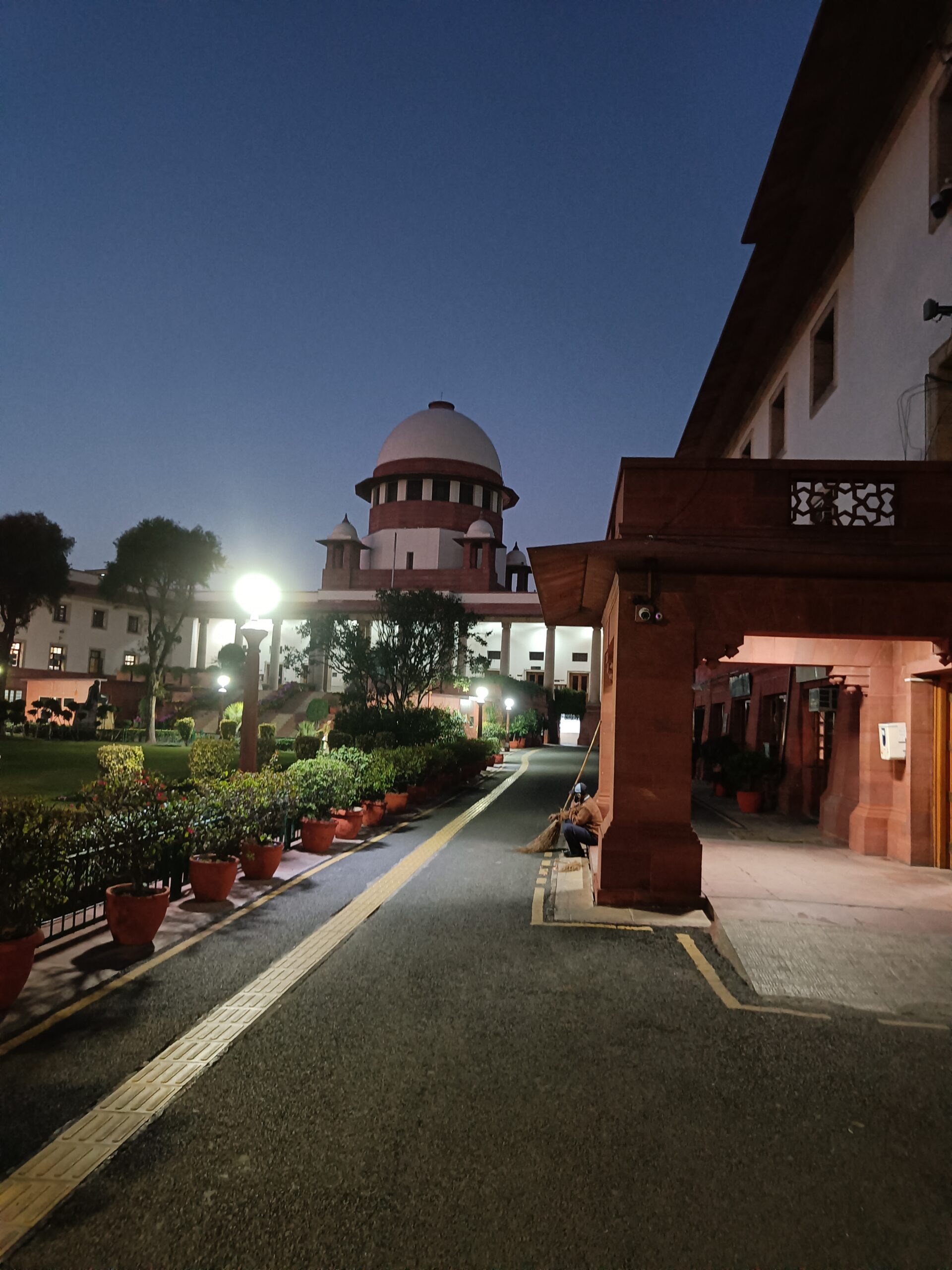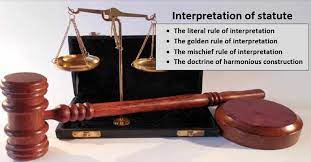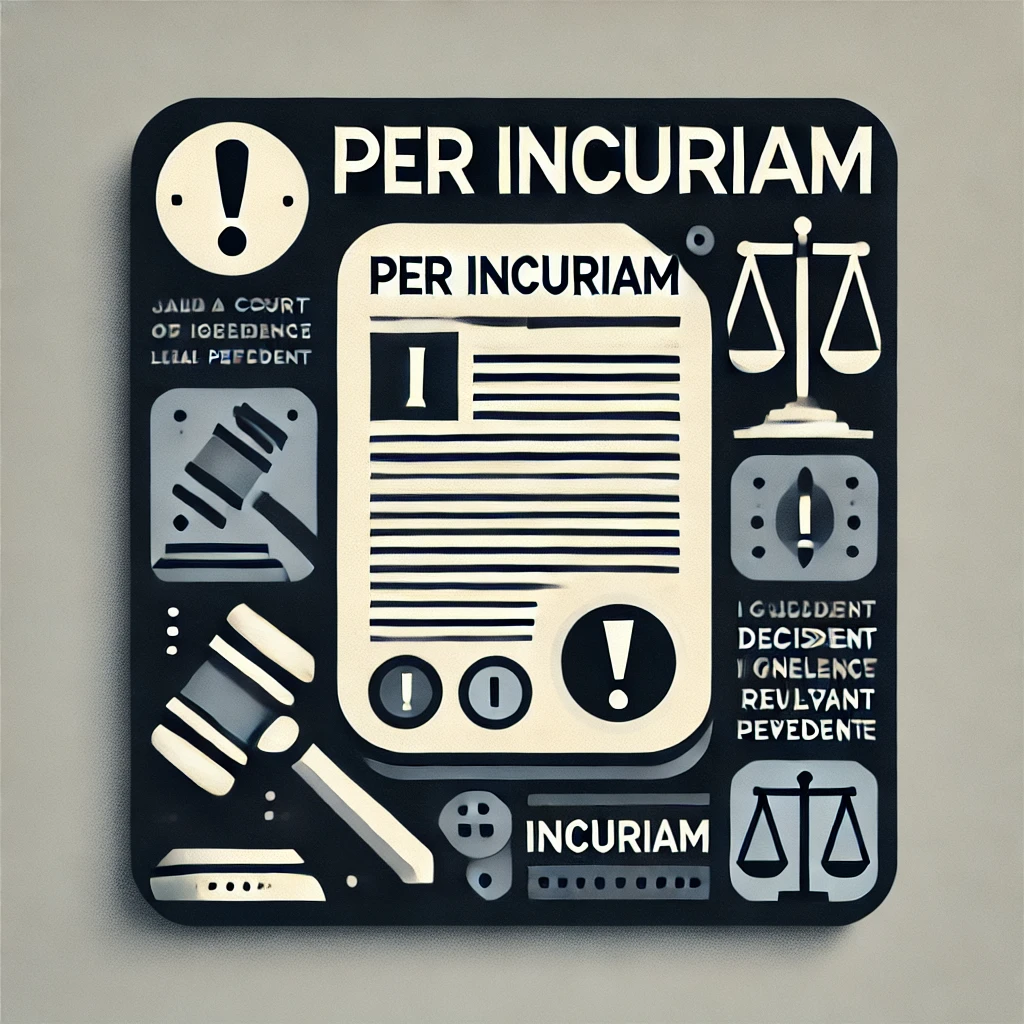
Legal principles are the foundation of the Constitution of India and they pervade all statutes.However they have gone into the background and are not a major part of legal discourse.
Legal principle of Suppression of material facts

The Indian Supreme Court has emphasized the importance of disclosing all relevant facts and avoiding suppression of facts in court proceedings. The judgments warn that failure to disclose material facts or misrepresenting them could result in the revocation of special leave or the dismissal of a case. The courts also observe a decline in the value of truth and non-violence in modern Indian society, which has resulted in litigants resorting to unethical means and suppression of facts to achieve their goals. The judgments emphasize that suppression of facts is equivalent to falsehood, and any litigant who pollutes the stream of justice will not be entitled to any relief, interim or final.
Legal principle of Contemporanea exposito

Contemporanea expositio is a legal principle that means “contemporaneous exposition” in Latin. It is a principle of statutory interpretation that suggests that the courts should give great weight to the interpretation given to a statute by those who were responsible for its implementation at the time the statute was enacted.
In other words, when a statute is ambiguous or unclear, the courts may look to how the statute was understood and applied by the authorities who were responsible for implementing it at the time it was enacted, to determine the intended meaning of the statute.
This principle is based on the idea that the people who were responsible for implementing the statute at the time of its enactment were likely to have a better understanding of the intent and meaning of the statute than the courts, which are interpreting it years or even decades later. Therefore, their understanding of the statute should be given significant weight when interpreting it.
K.T.V. HEALTH FOOD PVT. LTD. …APPELLANT (S)
VERSUS
UNION OF INDIA AND ORS. …RESPONDENT(S) decided by the Hon’ble Supreme Court of India on Feb.1, 2023
Legal principles of conviction by circumstantial evidence
in Shivaji Sahabrao Bobade v. State of Maharashtra [(1973) 2 SCC 793 :
1973 SCC (Cri) 1033 : 1973 Crl LJ 1783] where the observations were made: [SCC para 19, p. 807: SCC
(Cri) p. 1047]
“Certainly, it is a primary principle that the accused must be and not
merely may be guilty before a court can convict and the mental distance between
‘may be’ and ‘must be’ is long and divides vague conjectures from sure
conclusions.”
(2) the facts so established should be consistent only with the hypothesis of the
guilt of the accused, that is to say, they should not be explainable on any other
hypothesis except that the accused is guilty,
(3) the circumstances should be of a conclusive nature and tendency,
(4) they should exclude every possible hypothesis except the one to be proved,
and
(5) there must be a chain of evidence so complete as not to leave any reasonable
ground for the conclusion consistent with the innocence of the accused and must
show that in all human probability the act must have been done by the accused.
These five golden principles, constitute the panchsheel of the proof of a case
based on circumstantial evidence.
Legal Principle of delay in seeking relief from courts.

Introduction: This case analysis pertains to a legal matter involving delay in seeking relief and concealment of material facts in a writ petition. The respondents had filed a writ petition after a significant delay of 46 years from the finalization of the record of rights. Additionally, they had not disclosed the filing and subsequent withdrawal of a civil suit claiming the same relief. The court examined the applicability of constructive res judicata and the maintainability of the writ petition based on these factors.
Summary:
The case involved a delay of 46 years in filing the writ petition after the finalization of the record of rights, which the court deemed highly belated. The respondents had multiple opportunities to seek appropriate remedies, including filing objections before the finalization of the record of rights, filing for revision within one year, and filing a civil suit. However, they failed to avail of these remedies effectively.
The court also considered the maintainability of the writ petition in light of the withdrawal of the civil suit without the liberty to file a fresh one. Referring to the principle of constructive res judicata, the court concluded that the respondents’ writ petition was not maintainable and should not have been entertained. The respondents should have disclosed the complete facts, including the filing and withdrawal of the civil suit, while justifying the filing of the writ petition.
Furthermore, the court emphasized that mere notings in government files cannot be relied upon as orders unless communicated to the concerned party. In this case, there was no formal order from the government conveyed to the respondents regarding land allotment, rendering their claim baseless.
Conclusion:
Based on the analysis, the court allowed the appeal, set aside the order of the High Court, and dismissed the writ petition. The respondents were not entitled to any relief due to the significant delay in seeking remedies, concealment of material facts, and the absence of a formal order from the government regarding land allotment.
State of Orissa & anr. … Appellants
Versus
Laxmi Narayan Das (Dead)
thr. LRs & ors. … Respondents……………….. decided by the Supreme Court of India on July 12, 2023.
Principle of preponderence of probability
The principle of preponderence of probability is applicable in Motor Vehicle Accident claims.
In a recent legal development, the Supreme Court has overturned a High Court order that quashed a final report from further investigation into an accident involving a driver of tanker lorry. The High Court’s observations and findings were deemed unnecessary during the report’s examination. The accident, which tragically claimed several lives, led to compensation claims filed by the affected parties. The Supreme Court emphasized that establishing negligence on the part of the tanker lorry driver is crucial for the compensation claims to be considered.
The burden of proof lies with the claimants, and the standard of “preponderance of probabilities” is applied, not “proof beyond reasonable doubt.” Consequently, the High Court’s order has been set aside, and the case will proceed accordingly.
Mathew Alexander Appellant(s)
Vs.
Mohammed Shafi and Anr. Respondent(s) decided by the Supreme Court of India on July 13, 23.
Rule of Subsilentio
Sub silentio is a legal term that refers to a situation in which a court makes a ruling or applies a principle without taking into account the applicable law or any argument.
Doctrine of Merger and Per Incuriam

The Supreme Court judgment in Mary Pushpam v. Telvi Curusumary & Others (Civil Appeal No. 9941 of 2016) elucidates several important legal principles that reinforce judicial discipline, the doctrine of merger, and property law. The key legal principles are as follows:
Doctrine of Merger:
- Definition: The doctrine of merger posits that when a higher court renders a decision on a matter, the judgments of the lower courts merge into the higher court’s decision. The higher court’s judgment becomes the final and authoritative ruling on the matter.
- Application in the Case: The Supreme Court emphasized that the 1990 High Court judgment, which recognized the appellant’s possession over the entire 8 cents of land, was final. Lower courts in subsequent litigation were bound by this judgment, and any reinterpretation was inappropriate.
Judicial Discipline and Propriety:
- Respect for Higher Court Decisions: Lower courts and coordinate benches must adhere to the decisions of higher courts. If a bench of the same level disagrees with a prior decision, it cannot overrule it but must refer the matter to a larger bench.
- Consistency in Judicial Decisions: This principle promotes certainty and consistency in the law, ensuring individuals can rely on judicial decisions.
- Case Reference: The Court cited State of Punjab & Anr. v. Devans Modern Breweries Ltd. & Anr. and Central Board of Dawoodi Bohra Community & Anr. v. State of Maharashtra & Anr., reinforcing that lower courts must follow the decisions of higher courts to maintain judicial hierarchy and discipline.
Doctrine of Precedent:
- Binding Nature of Precedents: Courts are bound by previous decisions (precedents) of higher courts or coordinate benches of equal strength.
- Stare Decisis: This legal doctrine ensures legal consistency and predictability by obligating courts to follow established precedents.
- Impact on the Case: The High Court in the second round failed to follow the precedent set by the earlier High Court judgment, which was a breach of judicial propriety.
Adverse Possession:
- Concept: Adverse possession allows a person to claim ownership of land under certain conditions, such as continuous and uninterrupted possession over a statutory period.
- Recognition in the Case: The 1990 High Court judgment recognized that the appellant had perfected her title to the entire 8 cents of land through adverse possession, given her long-standing possession and the respondents’ lack of action.
Identification of Property in Possession Claims:
- Requirement of Specificity: In suits for possession, the property must be described with precise details, including measurements and boundaries.
- Legal Implication: Failure to accurately identify the property can lead to dismissal of the suit due to lack of clarity and potential for dispute over the property in question.
- Application: The respondents’ claim lacked specific property details, weakening their position and supporting the appellant’s claim.
Hierarchy of Courts and Binding Decisions:
- Binding Nature of Higher Court Judgments: Decisions from higher courts are binding on lower courts within the same jurisdiction.
- Prohibition of Contradictory Decisions: Lower courts cannot issue judgments that conflict with higher court rulings on the same matter.
- Enforcement in the Case: The Supreme Court held that the Trial Court and the High Court in the second appeal erred by not adhering to the earlier High Court judgment, thereby violating the hierarchy and authority of court decisions.
Principle Against Re-litigation of Decided Matters:
- Finality of Judgments: Once a matter has been adjudicated and a final judgment rendered, the same parties cannot re-litigate the same issues.
- Doctrine of Res Judicata: This legal principle prevents abuse of judicial processes by prohibiting multiple lawsuits on the same matter.
- Relevance to the Case: The respondents attempted to challenge matters already settled in the 1990 judgment, which was impermissible.
Necessity of Following Procedural Law:
- Procedural Compliance: Parties must comply with procedural requirements, such as accurately detailing claims and providing necessary evidence.
- Effect on Legal Outcomes: Non-compliance can result in dismissal or weakening of a case.
- Case Impact: The respondents’ failure to provide detailed property descriptions and boundaries undermined their legal position.
Conclusion
The Supreme Court’s judgment reinforces the importance of judicial hierarchy, the binding nature of higher court decisions, and adherence to established legal doctrines like the doctrine of merger and adverse possession. It serves as a reminder that courts must respect precedents to maintain consistency, reliability, and integrity within the legal system.
